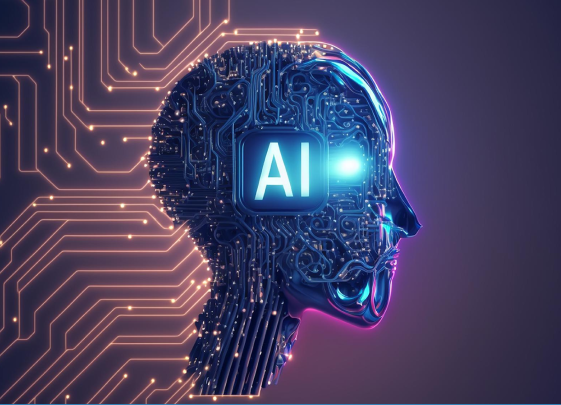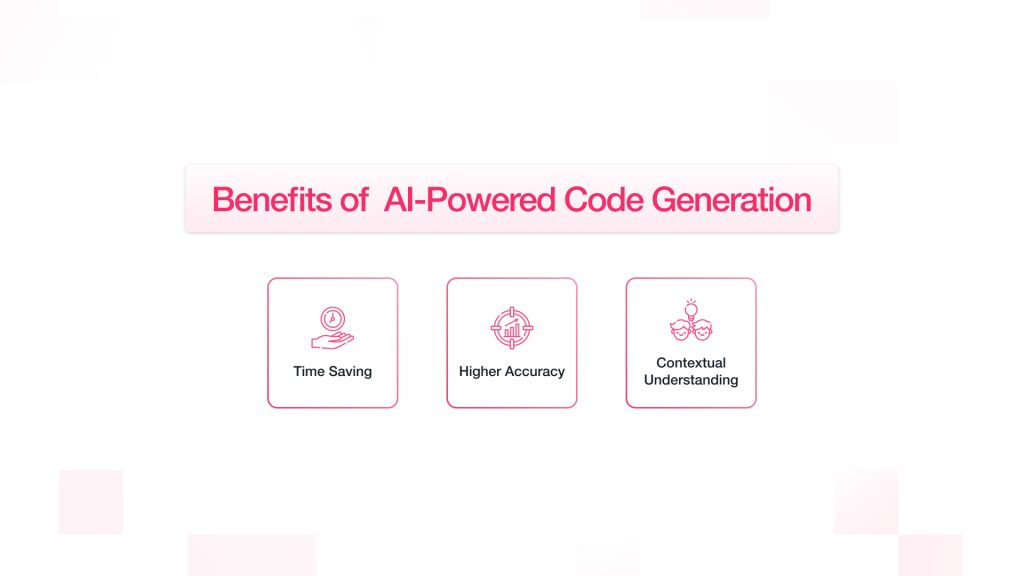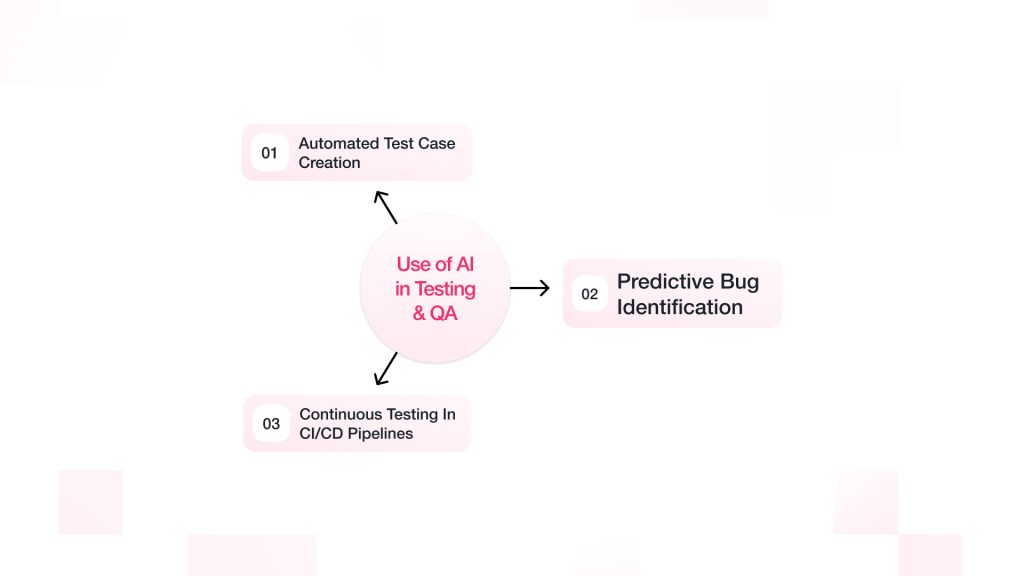The Future of AI in Software Development
AI has arrived. It is altering every stage of the software development process. Now, tools use data to make educated guesses about what might be most effective for the way things are constructed. AI will speed up software development in the future. It will contribute to improved outcomes. It may even stimulate the generation of new ideas.
- September 22, 2025
- by Tarun


Introduction: Why the Future of AI in Software Development Matters
The software industry is known for fast ways of working, being exact, and finding new ideas. Over time, the way people work has changed a lot. In the past, code was made one step at a time. Now, there are tools that help and make things easier. The way you and your team get things done is not the same as it was. The traditional ways are now being changed by teams that collaborate faster and with lesser trouble. Code is now written by more than just individuals. AI can also be used to assist teams.
But this change is different from those before. Artificial intelligence today is maximizing the opportunities and changing the ways-it contrasts very much with earlier shifts. It is more than just a new method or tool for completing tasks. This new partner has the capacity to grow, think, and adapt alongside us.
According to IBM’s 2025 study:
- 82% of developers use AI tools weekly.
- 78% report measurable productivity gains.
- Teams that use AI finish projects in half the time compared to teams that do not use it.
This is not just hype. The way that we build software is changing. AI is speeding up every step of the SDLC, which stands for Software Development Life Cycle. It helps with gathering what is needed, design, coding, testing, deploying, and even taking care of software over a long time.
The big question for businesses is not if AI will change the future of software development. It is entirely up to us as to how fast we adapt this.
AI as the New Developer’s Co-Pilot
Coding used to be done by hand for a long time. Fixing problems with code used to take a lot of hours and needed a lot of skill. AI has changed how people write code. Developers are no longer required to work alone. With clever AI assistance, they write code.
AI-Powered Code Generation
Complete lines of code might be suggested by tools like GitHub Copilot. They might alter routines or adapt hard functions from easy steps.

Key Benefits:
- Time Savings: Repetitive coding tasks (boilerplate, formatting, documentation) are automated.
- Higher Accuracy: AI tools learn from billions of code examples to offer optimized solutions.
- Contextual Understanding: Unlike traditional autocomplete, AI understands project context and dependencies.
Ai assists developers in completing 126% more projects within a week compared to those coding manually.
Debugging and Error Reduction
Debugging, once a dreaded time sink, is now being streamlined. AI-powered tools can:
- Analyse code for vulnerabilities.
- Highlight logical inconsistencies.
- Suggest security patches in real time.
IBM researchers call AI the new “rubber duck” for developers—a companion that not only listens but actively proposes solutions.
Know more about Security pitfalls in Software Development Life Cycle.
AI in Software Architecture
Architecture is where software projects get made or don’t work out. If you have a bad design, you are stuck with slow speeds. It can also be hard to grow your system. Later on, you might need to pay more to have things fixed. In the past, people dealt with these problems by applying their knowledge. However, AI can now assist you with this task as well.
Predictive System Design
AI can tell you how things work when many people use the system. It can also show where things might slow down. AI gives tips on what designs to follow before you start to write any code.
Generative Architecture
- In the near future, AI will help architects with design work.
- These cloud-native systems are made to save money and grow easily.
- Microservice-based set ups made to fit what the business needs.
- These frameworks can change and improve themselves as things happen in real time.
This is the start of “AI Architects.” These are people who have years of engineering skill and always look ahead with help from AI.
AI-Powered Testing and QA
Testing takes up as much as 40% of the time in a software project. AI will be extremely helpful in this important area.

Automated Test Case Creation
AI can assist in creating test cases based on acceptance rules, user stories, or requirements. In this manner, the tests are able to check more and miss fewer things.
Predictive Bug Identification
AI doesn’t wait for a glitch in the code. It looks at old bug data to find out which parts of the code may have more errors.
Continuous Testing in CI/CD Pipelines
Integration of AI technology with DevOps can offer immediate testing. This method of learning is accelerated, and the job gets automated. Release times are greatly shortened as a result.
Result: Basically, this would let products get updates without delays and yet keep the level of quality. Due to it, the QA turns into an asset for the strategy rather than the opposition to it.
AI in DevOps and Software Delivery
DevOps thrives on automation, and AI takes it to the next level.
Intelligent CI/CD Pipelines
AI can optimize release timing, reduce failed deployments, and suggest rollbacks automatically.
Predictive Infrastructure Monitoring
Instead of reacting to outages, AI models predict server failures, network slowdowns, or security threats.
Smart Resource Allocation
Cloud environments can dynamically scale resources using AI-driven predictions, ensuring cost efficiency.
AI in DevOps leads to faster feedback loops, fewer errors, and greater delivery visibility.
Need Reliable Software Development partner to help grow your Business?
Our Experts Can Help!
The Human vs AI Debate – Replacement or Reinforcement?
A pressing question is whether AI will replace developers entirely.
The Reality Check
AI won’t eliminate engineers—it will redefine their roles.
Instead of: Writing boilerplate code.
Developers will:
- Focus on strategic problem-solving.
- Collaborate with AI for creative innovation.
- Govern AI ethics, compliance, and quality assurance.
This evolution echoes past fears around automation: technology doesn’t destroy jobs—it reshapes them.
Generative Computing – A New Software Paradigm
IBM calls the next era “Generative Computing.” Unlike treating LLMs as black-box tools, developers will integrate them as programmable components.
Imagine a system where:
- AI modules adapt workflows dynamically.
- Applications evolve automatically based on user behaviour.
- Developers configure, rather than code, intelligent building blocks.
This transition moves us from static software to adaptive ecosystems—a radical shift in how digital systems function.
The Human Element – Why Developers Still Matter
Despite AI’s promise, challenges remain:
- Contextual Reasoning Limits: AI struggles with multi-layered, long-term logic.
- Hallucinations: AI occasionally generates non-existent functions or insecure code.
- Ethical Risks: Bias, compliance, and IP protection need human oversight.
Developers remain the ultimate gatekeepers of trust and accountability. They ensure AI’s output aligns with business goals, legal standards, and ethical responsibility.
The Business Case – Why Early Adoption Wins
Organizations that embrace AI in software development gain:
- Faster Time-to-Market: Accelerating innovation cycles.
- Lower Development Costs: Reducing manual overhead.
- Stronger Competitive Edge: Delivering features ahead of the curve.
Case studies show AI-driven teams cutting delivery timelines by 30–40% while improving overall product quality.
Emerging Roles in the AI-Powered Software Industry
As AI reshapes software development, new roles are emerging:
- AI Architect: Designs adaptive, AI-first systems.
- Prompt Engineer: Crafts optimal instructions for AI coding assistants.
- Model Ops Engineer (MLOps): Manages AI lifecycle within enterprise systems.
- AI Ethics Officer: Ensures fairness, compliance, and responsible usage.
These roles highlight that AI doesn’t eliminate talent—it demands new specializations.
Predictions for the Next Decade
Looking forward, the future of AI in software development will be defined by:
- Human-AI Symbiosis: Developers and AI tools working as unified teams.
- Adaptive Systems: Software that evolves continuously without manual intervention.
- Cross-Disciplinary Collaboration: Developers, data scientists, and AI specialists working hand-in-hand.
- Ethical AI Development: Building responsible, bias-free, and secure systems.
- AI-First Startups: New companies built entirely on AI-driven development principles.
Preparing for the AI-Driven Future
The future of the software-development AI is no fantastic story. People are seeing productivity grow by more than 100%. AI helps in testing, and this cuts down QA cycles. It can even look ahead to spot problems that might cost teams. The good you get from using AI is clear for everyone.
Human developers are still crucial, though. The best outcomes occur when AI handles the tedious and guesswork tasks while humans handle the creative ideas, moral judgments, and future planning.
Groups that do not resist change will succeed in this new era. They employ AI as a reliable co-pilot. This transforms software development from a methodical process into an intelligent, flexible system.
 Shopify
Shopify

















